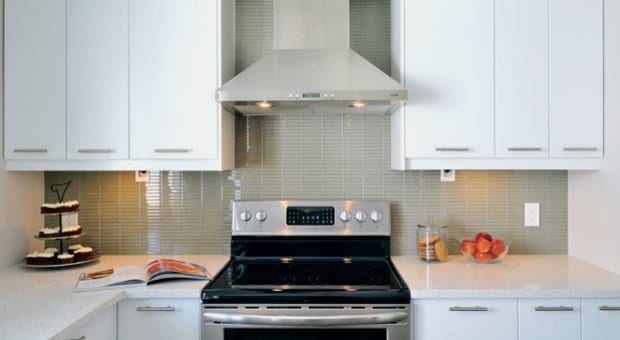
The property pictured is located at 1848 Dorset Dr in Ottawa and is listed with Anneke Cundasawmy. Credit: Anneke Cundasawmy
Buying your first home can be an intimidating process. For one thing, it’s the largest financial transaction most people will ever make. There are many benefits to home ownership — it’s an investment that, if managed correctly, can appreciate in value. It also gives you a more spacious place to live and frees you from a lifetime of paying down someone else’s mortgage with rent payments. But there are drawbacks as well. We’ve all heard horror stories from home owners: the fixer-upper that turned out to be unfixable, the shady mortgage with sky-high interest, the terrifying neighbours. If you think you’re ready to get into the property market, realtor Anneke Cundasawmy and mortgage broker Cindy Duncan offer these tips to help you avoid heartache and find a home you really love.
Manage your timing and expectations
There are many, many steps in the home-buying process, so patience is key. Don’t be swayed if a home doesn’t meet every requirement on your wish list; flooring and tile can be replaced, walls can be painted, and new appliances can be acquired. Whether a home is structurally sound and in a good neighbourhood are more important than whether it comes with a washer and dryer. Cundasawmy says she finds that, when considering neighbourhoods, most first-time LGBT buyers in Ottawa are more concerned with being close to amenities and shortening commutes than being in specifically “gay” communities.
Once you’ve been preapproved for a mortgage, you typically have 90 days to purchase a home, so finding the time to look at listings is imperative. Once you’ve found “the one,” getting the details in order can take several weeks, so it’s good to have established a relationship with a realtor beforehand. Cundasawmy recommends getting in touch six to nine months before you’re planning to move if you’ve done no prep work at all and two to three months if you’ve already been researching on your own.
Build trusting relationships
A good realtor and mortgage broker can make the first-time home-buying process a positive experience by keeping your best interests in mind. A mortgage broker can negotiate with various financial institutions to get you the best rate, and a realtor who takes the time to get to know you can help you find the best home for your needs, steer you away from problem properties, and guide you through multiple-offer situations.
Cundasawmy will even drive through neighbourhoods at different times of the day to get a feel for an area a client is interested in. “I treat people’s money as my own,” she says.
“This is the biggest, most important investment that you’ve ever made,” Duncan adds. “Especially the first time it’s certainly helpful, I think, to have somebody with you that will help walk you through the process and try to educate you about it so you can feel comfortable and really happy . . . It’s like sex — the first time counts!”
Get your finances in order
“If a buyer looks clean and clear and they can qualify for a good rate, then they can afford more house,” Cundasawmy says. Credit is key: having outstanding debt on multiple credit cards is one of the major factors that can influence your credit rating, so paying them off and reducing the number of cards you have can make a difference. Duncan recommends hanging on to the card you’ve had the longest, as this is where you will have built up the most credit history. And it’s a good idea to lower your credit limit if you can; a high credit limit can make you look like a bad risk.
Your debt-servicing ratio is also extremely important. This is the percentage of your monthly income that is spent on housing costs: your mortgage, heating, property tax and all other existing monthly debts, including lines of credit, student loans and car payments. To qualify for a mortgage, these costs should not be more than 40 percent of your monthly income, but the requirements change if you are self-employed, part-time, pensioned, receiving a child-tax credit or on disability. “You may make lots of money, but if all your debts are maxed out, you may not be able to get a house,” Duncan says.
Get a flexible mortgage
“I don’t care who your mortgage is with, so long as it has the protections and functionality that a good mortgage should have,” Duncan says. Low-rate mortgages can look appealing on the surface, but if something unexpected happens and you have to sell your home, you could be hit with huge interest penalties if the mortgage isn’t portable. Low-rate mortgages can also trap you by preventing you from moving until it is paid off.
There are other, better ways to save money. Making a 20-percent down payment, for instance, means that you won’t have to buy the Canada Mortgage and Housing Corporation’s high-ratio mortgage insurance because the bank will be subsidizing a smaller percentage. If you work freelance, take note: the CMHC will not allow you to make a down payment with money that was gifted to you (such as by parents or other relatives) if you’re self-employed.
Anneke Cundasawmy Real estate sales representative, Keller Williams Ottawa Realty, kwottawa.ca, urbanique.ca
Cindy M Duncan Mortgage broker, Mortgage Alliance, mortgagealliance.com/cindyduncan


 Why you can trust Xtra
Why you can trust Xtra


